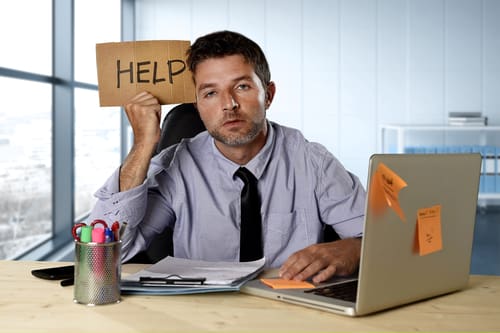Doomscrolling. What a clever word for something many people are doing today.
Most of us were attached to our phones before the pandemic and political craziness of 2020 had taken hold. Yet, now something different is happening when we reach for our phones. It’s like the Temple of Doom.
We turn it on, head to our favorite social media sites, and go down the doom tunnel. A horrific article about the politics of the day to the ever-widening death toll from the pandemic to the economic havoc and mayhem — and that’s just the start. Another critical part of the doom scroll is reading all of the comments. I often think the comments grab us into doom more than the news itself.
All of a sudden, we are reading, scrolling, getting amped up, becoming anxious and depressed all at once — and it just keeps going. Compulsively we continue the doomscroll barely able to take a breath away from all we are reading. Someone told me he finally stops when there is no new doom to read. Seven hours in he takes leave of his phone!
This article in the Washington Post lays out what doomscrolling is and how to reign it in so you aren’t relying on the doom all day long. Some ideas in the article include changing your screen color to gray, spending limited amounts of time on-line in these ways, finding places on the Internet that offer the exact opposite of doom – like cute pictures of animals.
A few more ideas – actually purchase a real newspaper and read it. So old fashioned I know. Here though you can enjoy all of the news of the day without reading the comments of doom. Further, it provides space for your own good thinking about the article. Also, you are deciding what you will read in depth, skim, and skip altogether. Online reading is much more difficult to discern which is which for you on any given article as you may not be so interested, but you do want to hear what others think about it. Taking a more solo path can keep the doom at bay.
Also, choose your time of day for a good doomscroll. One where you are awake, active, and alert and not seeking rest and relaxation. Align yourself with the most energy you have to take it in and then leave plenty of time afterwards to let it all go. At night, keep your phone outside of your bedroom. Do not mindlessly reach for it, but keep in mind and value your sleep and rest over the doomscroll. Don’t worry all of the doom will be there waiting for you tomorrow.
We are wired to latch on to the bad and then worry to the nth degree about it all. We also our communal beings — we are drawn to know what someone else is thinking and then perhaps try that stance on and see if we feel the same way or not. However, this muddies the waters of knowing our own minds and trusting how we are thinking for ourselves. Reading without adopting how others are thinking about something is creating space for your own independent thinking. More important than ever these days.
Finally, doomscrolling is a time suck. It sucks you right down into the temple of doom and doesn’t let you go to actually live your life. There is less time for you. Sometimes I read the comments on news and its just on and on fighting and fighting and I think to myself do people really have so much time to fill arguing with strangers? Everyone is always saying how busy they are — is this what people are busy with? Or is doomscrolling a way to escape life that feels miserable? Sometimes I feel like attracts like. We feel our personal lives are doomed and so we seek out external doomscrolling to match this internal feeling.
Take a break and take stock. Life is lived in reality. Put the phone down, pick up a real paper, after a little bit of time, put the paper down, and go out and embrace your life. May it be full of Joy Living — hopefully steps — even miles — away form the doom.










